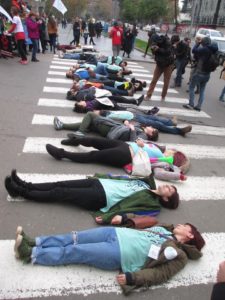LESSON
Lesson Learned: ICT Empowerment of Women’s Voices in Haiti
In low-income countries, women’s empowerment projects should develop collaborations with organizations specialized in literacy to enable rural women to acquire computer skills.
Project Name
Project Partner
ActionAid Haiti
Project Description
Considering that 24 per cent of rural women in Haïti are farmers, issues around access to land, management and exploitation of natural resources are hugely important. In both the North and North-East departments where 50 per cent of the population rely on farming activities to live, land issues in can be highly contested and become a source of conflict.
To addresses the issues faced by rural Haitian women farmers, UNDEF funded a project focusing on women’s access to ICT. The project was highly effective in both building skills and strengthening the capacity of women to network and lobby for their rights. Through the activities of the project, rural women’s capacities to lobby for results were increased. The use of technology to achieve lobbying outcomes was innovative and efficient, leading to direct benefits in the five target communities. The project was relevant and facilitated the establishment of dialogue between grassroots organizations and local authorities. The implementing agency also efficiently managed high-level outputs remaining within the project plan.
Evaluation Date
May 2018
Theme
Country
